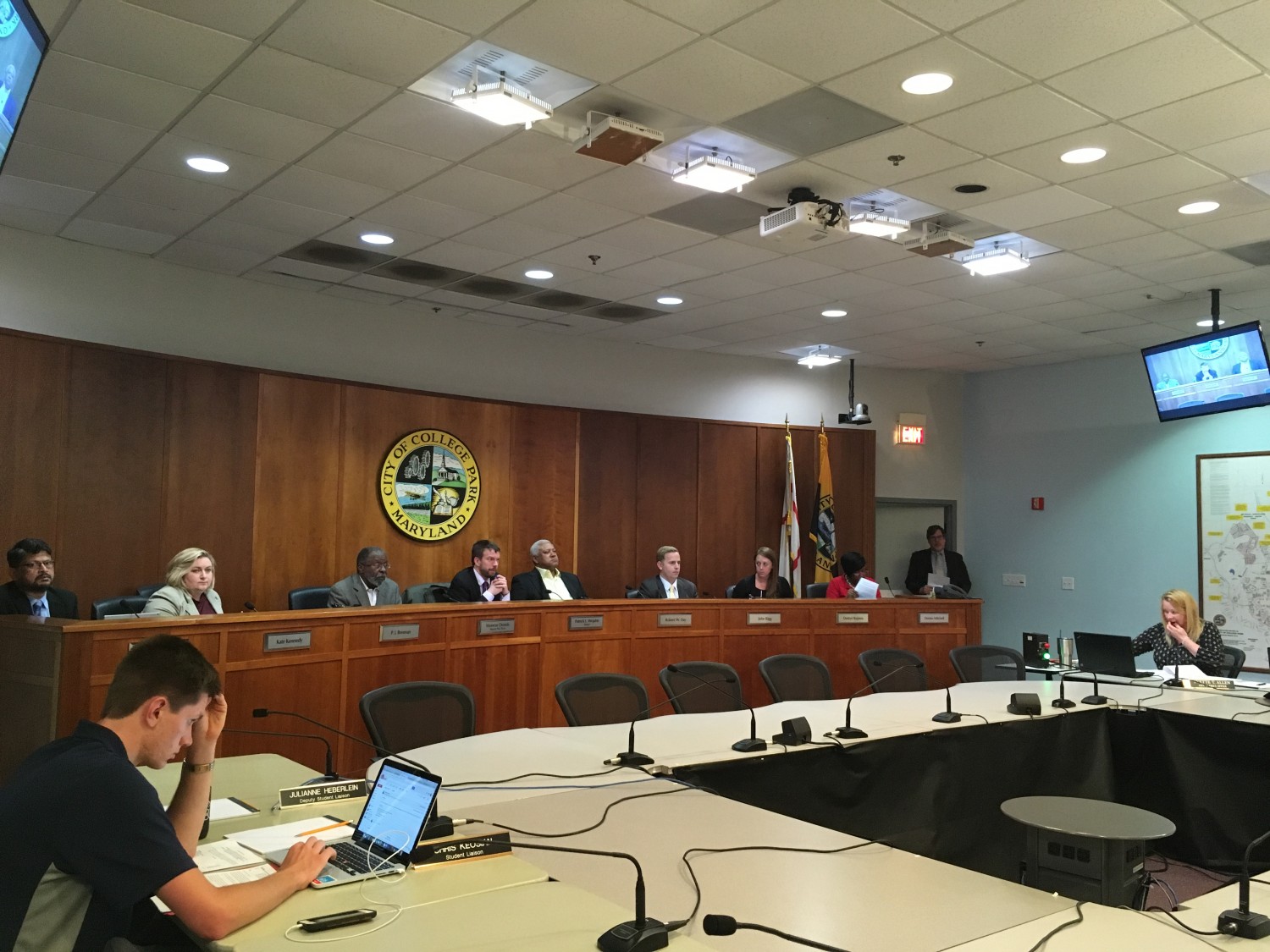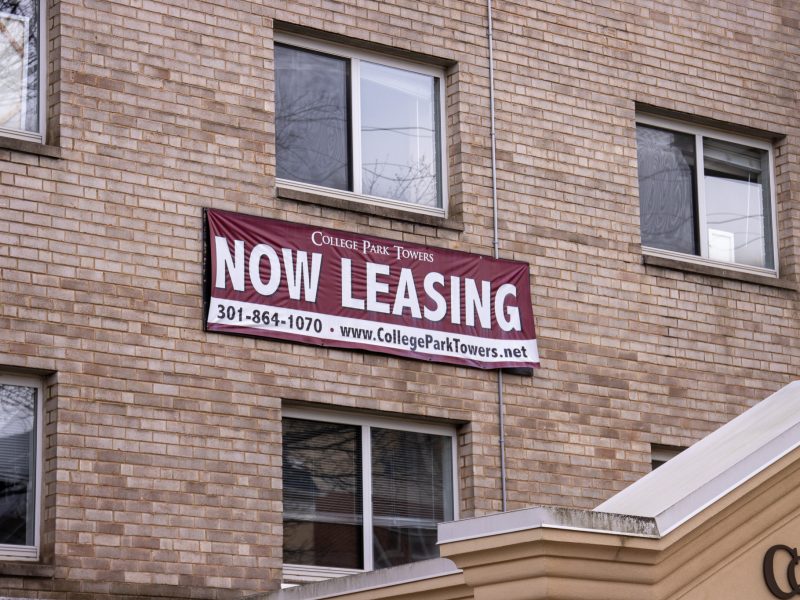The College Park City Council passed a hotly debated charter amendment Tuesday night, upholding the mayor’s ability to cast tie-breaking votes.
About 30 people attended the meeting. More than 10 of them testified against the charter amendment or asked the council to delay the vote, citing reasons such as a desire to wait until an open meetings provision complaint is resolved and further consideration to be taken of the original intent of the city’s charter. The measure passed, 5-2.
District 4 Councilwoman Denise Mitchell, West College Park Association president Suchitra Balachandran and former District 4 Councilwoman Mary Cook submitted a complaint to the Maryland Open Meetings Compliance Board April 16, alleging the mayor and council had sought legal advice in an improper way.
[Read more: College Park City Council votes to remove portion of amendment adjusting voting threshold]
The board must submit a written opinion within 30 days of its “receipt of the public body’s response, if the complaint and response have provided the Compliance Board with enough information,” according to the Maryland Attorney General’s website.
State law allows the city to determine who is in the legislative body, but as the words “legislative body” did not appear in the charter, residents have raised issues about whether the city’s “legislative body” was clearly stated within the charter as well as if the mayor is distinctly part of the legislative body, according to a city fact sheet.
This charter amendment will allow the mayor to continue to maintain their current role in College Park, which is to break ties in votes, Mayor Patrick Wojahn said before the meeting.
“A faction of the city council wants to give the mayor more powers without admitting to the public that they are doing that,” Balachandran said when she stepped up to the lectern.
[Read more: Part of College Park’s charter violates state law. The council wants to change it.]
District 4 Resident Maria Mackey asked the council to postpone the vote for reasons she said were “very simple.”
“It’s causing a lot of division in our city and it’s causing, I think, a lot of stress for different people,” she said, adding she wishes the city would focus on more imminent concerns.
North College Park Community Association President John Krouse also suggested that city council wait until the complaint has been resolved before making a decision.
“There’s been a lot of controversy recently, and I know there’s been a lot of embarrassment and concern over the past couple of months regarding these matters, very regrettable, and I don’t want to add to that,” he said.
The council voted on Sept. 12 to adopt a measure that would have enabled non-U.S. citizens to vote in city elections. The city later announced that it did not pass because it did not receive the required number of votes. In October, city officials also announced a six-vote provision to pass charter changes violated state law.
District 3 Councilman John Rigg was not receptive to residents’ calls to wait to vote.
“It still puzzles me a little bit how we can imagine that this is … in any way not analyzed when in fact it has been subject of several hearings, several work sessions and several closed sessions,” he said. “These are conforming changes that conform our charter to our current and long-held practice of the mayor breaking ties.”
Wojahn said before the meeting that this “is really a simple matter of getting our charter in order” and clarifying — for purposes of upholding state law — who is a member of the legislative body.
District 1 Councilwoman Kate Kennedy discussed why, after mulling over the issue for a while and having City Manager Scott Somers walk her through it, she decided to support the amendment.
“I agree this is not a change in the mayor’s power … we have two attorneys that say it is [not a change],” she said, to which many audience members shouted, “No you don’t!”
City Attorney Suellen Ferguson and outside counsel Victoria Shearer prepared the city’s charter amendment fact sheet, which states that “the amendment does not expand the Mayor’s powers to vote.” It is designed to clarify voting provisions and to “maintain the past practice of allowing the Mayor to vote to break a tie for Charter amendments and other actions,” according to the document.
District 1 Councilman Fazlul Kabir took issue with the council’s transparency, particularly citing an Oct. 3 memo containing legal advice on a proposed city charter amendment, which was not publicly released to residents.
“Without that document, we’re not going to have a comprehensive debate among the residents,” he said. “There’s been a cloud hanging over the city — ‘what is in that document?'”
CORRECTION: Due to an editing error, a previous version of this story misspelled Patrick Wojahn’s first name. This article has been updated.



